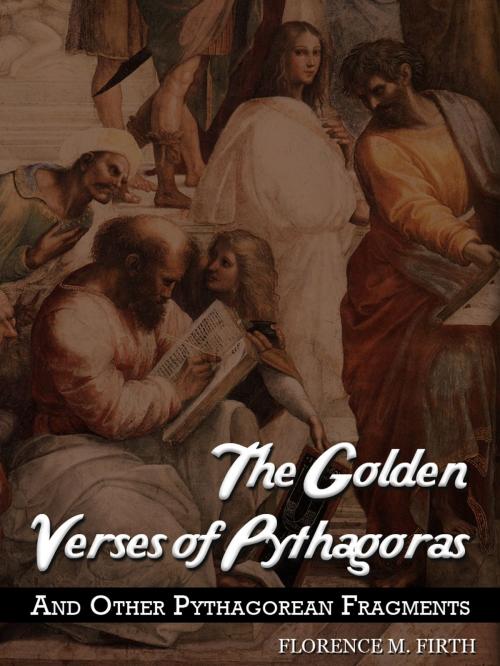The Golden Verses Of Pythagoras
Nonfiction, Science & Nature, Mathematics, Finite Mathematics, Science, Physics, Mathematical Physics| Author: | Florence M. Firth | ISBN: | 1230000097449 |
| Publisher: | AppsPublisher | Publication: | January 7, 2013 |
| Imprint: | Language: | English |
| Author: | Florence M. Firth |
| ISBN: | 1230000097449 |
| Publisher: | AppsPublisher |
| Publication: | January 7, 2013 |
| Imprint: | |
| Language: | English |
The Golden Verses of Pythagoras
by Florence M. Firth
Pythagoras of Samos (born between 580 and 572 BC, died between 500 and 490 BC) was an Ionian Greek mathematician and founder of the religious movement called Pythagoreanism. He is often revered as a great mathematician, mystic and scientist; however some have questioned the scope of his contributions to mathematics and natural philosophy. He is best known for the Pythagorean theorem, which bears his name. Known as “the father of numbers†, Pythagoras made influential contributions to philosophy and religious teaching in the late 6th century BC. He was the first man to call himself a philosopher, or lover of wisdom, and Pythagorean ideas exercised a marked influence on Plato. Unfortunately, very little is known about Pythagoras because none of his writings have survived. Many of the accomplishments credited to Pythagoras may actually have been accomplishments of his colleagues and successors.
The Golden Verses of Pythagoras
by Florence M. Firth
Pythagoras of Samos (born between 580 and 572 BC, died between 500 and 490 BC) was an Ionian Greek mathematician and founder of the religious movement called Pythagoreanism. He is often revered as a great mathematician, mystic and scientist; however some have questioned the scope of his contributions to mathematics and natural philosophy. He is best known for the Pythagorean theorem, which bears his name. Known as “the father of numbers†, Pythagoras made influential contributions to philosophy and religious teaching in the late 6th century BC. He was the first man to call himself a philosopher, or lover of wisdom, and Pythagorean ideas exercised a marked influence on Plato. Unfortunately, very little is known about Pythagoras because none of his writings have survived. Many of the accomplishments credited to Pythagoras may actually have been accomplishments of his colleagues and successors.















